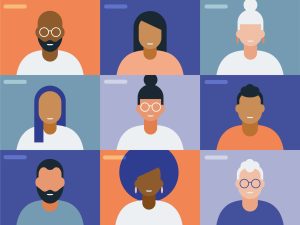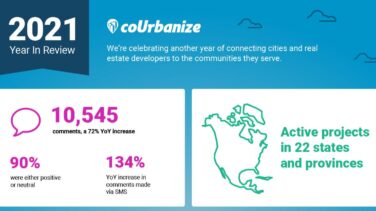 Before last year, having white women on your team at a startup was considered enough to ‘check’ the diversity box. I’ve always had a problem with that and I’m glad to see it starting to change. But true, systemic change requires real work from CEOs and business leaders who look like me.
Before last year, having white women on your team at a startup was considered enough to ‘check’ the diversity box. I’ve always had a problem with that and I’m glad to see it starting to change. But true, systemic change requires real work from CEOs and business leaders who look like me.
I am not an expert. I have biases just like everyone else. But I am committed to doing better and doing the work. So with that in mind, let’s get into the details of what we’re changing at coUrbanize.
Change how you hire so more women of color apply and get hired. Part of our first DEI action plan at coUrbanize involved a full assessment of our hiring practices from how we write job postings to how we evaluate candidates. Our goal is twofold – to diversify our talent pool and to reduce bias during the evaluation process. Here are some of the changes we’ve put into place, starting this month.
- Job postings. What’s out: years of experience, degree requirements, gendered language, and words that don’t really mean anything (passionate, guru, energetic). What’s in: salary bands to prevent undervaluing, must-haves requirements only.
- Values over ‘cultural fit.’ Cultural fit is a catch-all for affinity bias and a common reason why candidates who aren’t like the majority of the company don’t get hired. Instead, we’re going to focus on alignment with our core values. Our values are really specific to the work that we do. If yours are more general, this may not be as impactful.
Spend more money at businesses owned by women of color. Both in your personal life and at work, put your money where your corporate statements are. From swag and supplies to contractors and vendors, diversify where your budgets go. We’re shaping our second DEI action plan now, and we’re setting a goal specifically for increasing spend with Black and minority-led firms.
Lift up their voices and make space for them. coUrbanize straddles two industries, both with major representation issues. The problem is glaring when you look at executive teams, panels, boards, and participation in industry associations. Last year, we committed to not participate on all-white panels or sponsoring those events. Like most tech companies, we also produce a steady feed of webinars, events, and content. We’ve made the same commitment about these internal programs.
Start asking questions about diversity data and representation within the organizations you support and participate in. Think about the news you share, the content you consume. Who writes it? What perspectives are you’re learning about? And perhaps most importantly, what’s missing?
Who gets to take up space during group conversations is also this umbrella. Whether at your organization or otherwise, notice who talks the most, who gets cut off, and who is silent. When you notice someone is taking credit for someone else’s idea, call out who shared it first. When someone is cut off, interject and invite them back into the conversation. When someone isn’t talking, welcome their ideas and feedback.
Individually, these actions feel minor. I recognize that as I sit here typing. These aren’t the sole fixes to the inequities that women living at the intersection of race face. But my hope is that they are a strong starting point. I’ll continue to share how we’re approaching this work in 2021.


